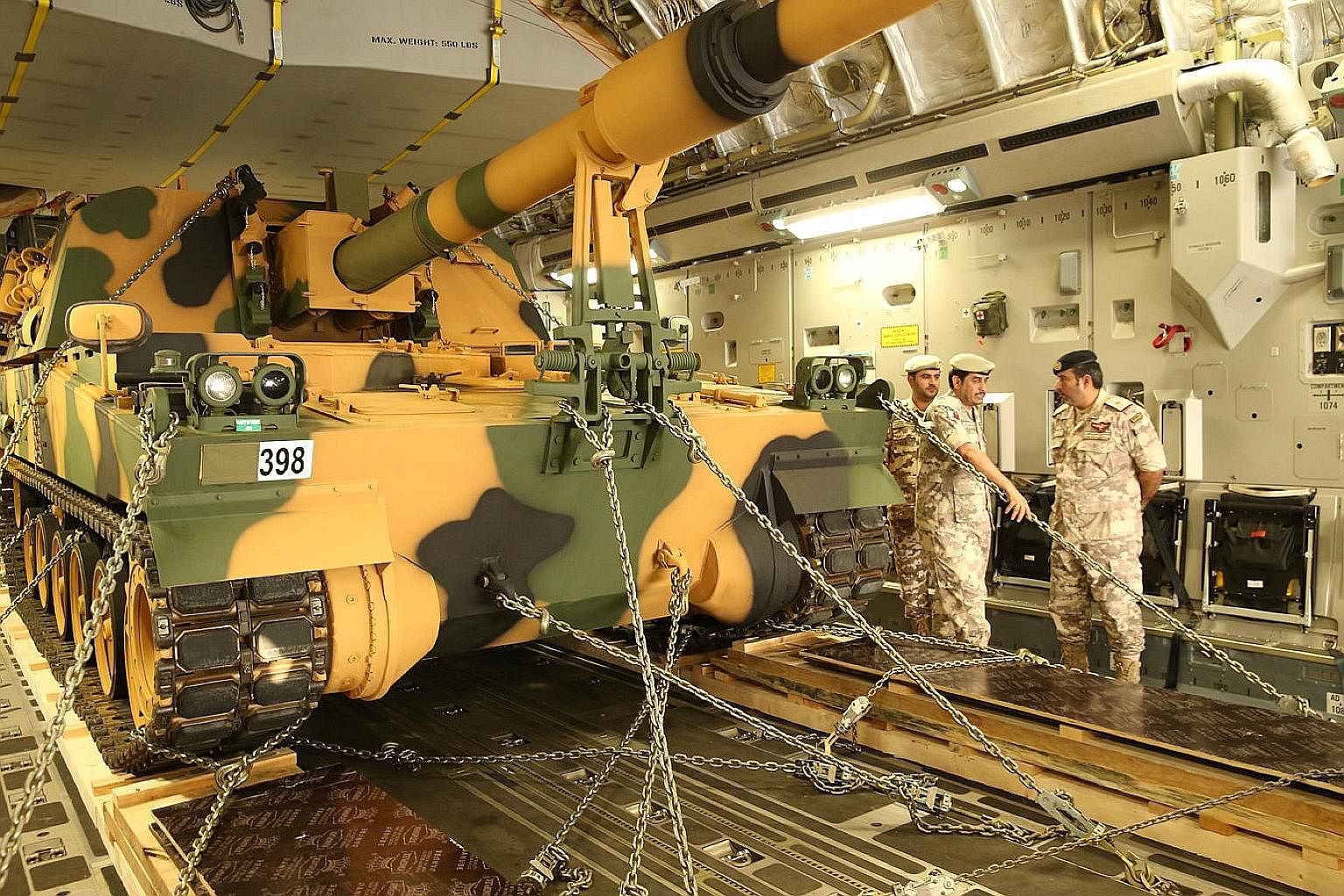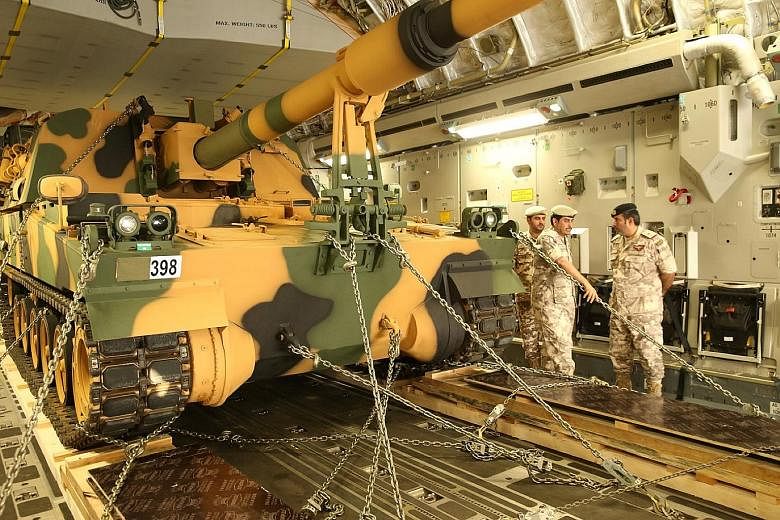Turkish President Recep Tayyip Erdogan announced plans to tour the Middle East by the end of this week, in the latest international effort to ease the confrontation between Qatar and other Gulf states.
But Mr Erdogan's arrival in the region is only likely to complicate Qatar's confrontation with its neighbours. And although Saudi Arabia and its allies who have initiated the economic and political blockade of Qatar appear to have softened their stance, no immediate resolution to the spat is in the offing.
Qatar has angered many Arab nations by supporting certain Islamist movements around the world and by being sympathetic to Iran, perceived by Saudi Arabia - by far the Gulf's biggest country - as a fundamental threat.
Qatar's founding of and continued financial support for Al Jazeera, the Arab world's top TV network, also alienated regional governments, most of which have broken off diplomatic ties with Doha, and are supporting an economic embargo against the tiny emirate.
Soon after the crisis erupted early last month, Turkey tried to act as an honest broker by offering to mediate between Qatar and its neighbours. "They are all our Sunni brothers and friends," one of President Erdogan's foreign policy advisers, Mr Ilnur Cevik, said at that time in an attempt to reassure Gulf states that Turkey shares their concern about Shi'ite Iran, but doesn't agree with their tactics.
Yet nobody in the region was surprised that once these initial diplomatic efforts were rebuffed by Egypt and Saudi Arabia, who lead the anti-Qatar front, Turkey signalled its strong support for Qatar. For the Turks and Qataris share a similar vision of the Middle East and are strong supporters of the Muslim Brotherhood, the pan-Arab Islamist political movement which is regarded as a mortal threat by most of the Middle Eastern monarchies.
Turkey also backed support for Qatar with deeds. At a special night session of the Turkish Parliament on June 7, legislators gave Mr Erdogan approval to dispatch troops to Qatar.

Turkey has also showed its support for Qatar with more practical measures, such as the airlifting of fresh food supplies blocked by the closure of the emirate's borders with Saudi Arabia.
President Erdogan has not given up his hope of becoming the peacemaker in this dispute, especially after US Secretary of State Rex Tillerson's recent shuttle diplomacy between Gulf capitals failed to produce a deal.
And the Turkish President has some important cards up his sleeve when he meets with the Saudi King at the end of this week. He could offer to withdraw Turkish troops from Qatar, in return for a lifting of the sanctions on Qatar, a move which will portray Turkey as a key player in the Middle East - precisely what he has sought all along.
And Mr Erdogan could promise that both Turkey and Qatar will tone down their support for the Muslim Brotherhood, something which may offer a face-saving solution to the dispute for both the Qataris and the Saudis.
However, everything ultimately depends on whether the Saudis and their regional allies are now keen to end the showdown. But the mere fact that Saudi Arabia's monarch has agreed to host President Erdogan is an encouraging sign; the Turkish leader has tried to clinch such a meeting for more than a month.
Equally encouraging are indications that the original 13 demands imposed on Qatar by its neighbours and dismissed by the Qataris as an "insult" to their sovereignty have now been whittled down to a mere six, which "should be easy for the Qataris to accept", as Mr Abdallah Al-Mouallimi, Saudi Arabia's Ambassador to the United Nations, told the media earlier in the week. Mr Erdogan, a master in negotiating complex deals, hopes that this apparent shift in the Saudi position could provide a basis for a resolution of the conflict.
But Western diplomats still believe that the prospect for a settlement remains slim, partly because the Saudis would be loath to hand a diplomatic triumph to Turkey on such easy terms, but also because Saudi Arabia's newly appointed Crown Prince Mohammad Salman, who has invested his personal reputation in this showdown with Qatar, won't like to be perceived as having failed in his first foreign policy gambit.
So, the dispute which has paralysed the Gulf is likely to rumble on. And it may only be resolved when US President Donald Trump personally intervenes; for the moment, the American leader has largely confined his actions to a few tweets appearing to favour Saudi Arabia.


